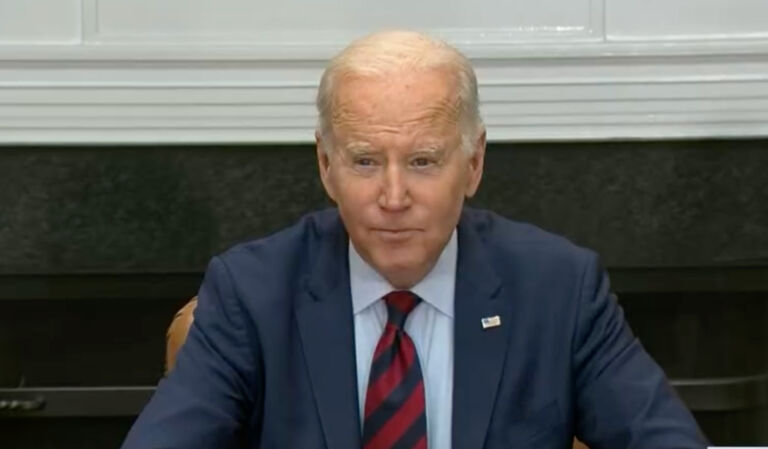Elle Reynolds of the Federalist explores Democrats’ likely electoral strategy in this year’s campaigns.
White House Chief of Staff Ron Klain offered an interesting insight into Democrats’ 2022 midterm election strategy on Sunday, musing about French President Emmanuel Macron’s ability to win reelection despite a 36 percent approval rating, implying a similar possibility for U.S. President Joe Biden. Instead of trying to turn Biden’s sinking approval ratings around by ditching failed policies, Democrats seem content with their underwater numbers so long as they can drive Republicans’ popularity even lower with smears and censorship.
Biden’s approval rating is at 40.9 percent, according to the RealClear aggregate, although a Quinnipiac poll has him as low as 35 percent and a CNBC poll has him at 38 percent. A February NPR/PBS NewsHour/Marist poll reported that 56 percent of Americans thought Biden’s first year in office was a failure, and the month before a mere 25 percent were “satisfied” with his administration. …
… [T]he White House is tacitly admitting it doesn’t care that Americans don’t like its agenda.
How is that a workable election strategy? It isn’t, unless you can convince voters to hate or fear your opposition even more. Democrats spent all four years of former President Donald Trump’s presidency pushing the Clinton campaign-funded Russia collusion hoax, aided by propagandists in the legacy media. When The New York Post broke news of sensational and incriminating Biden family scandals in the weeks leading up to the 2020 election, Big Tech and big media collaborated to nuke the story and censor those who tried to share it. …
… In a fair system, a president with approval ratings that are underwater by double digits would be worried about his next election, and probably worried enough to be making some big changes. But Biden has done nothing but double down. That signals just how confident his people are in their ability to collude with the censorship regime to smear their opponents or keep their arguments from reaching voters entirely.


